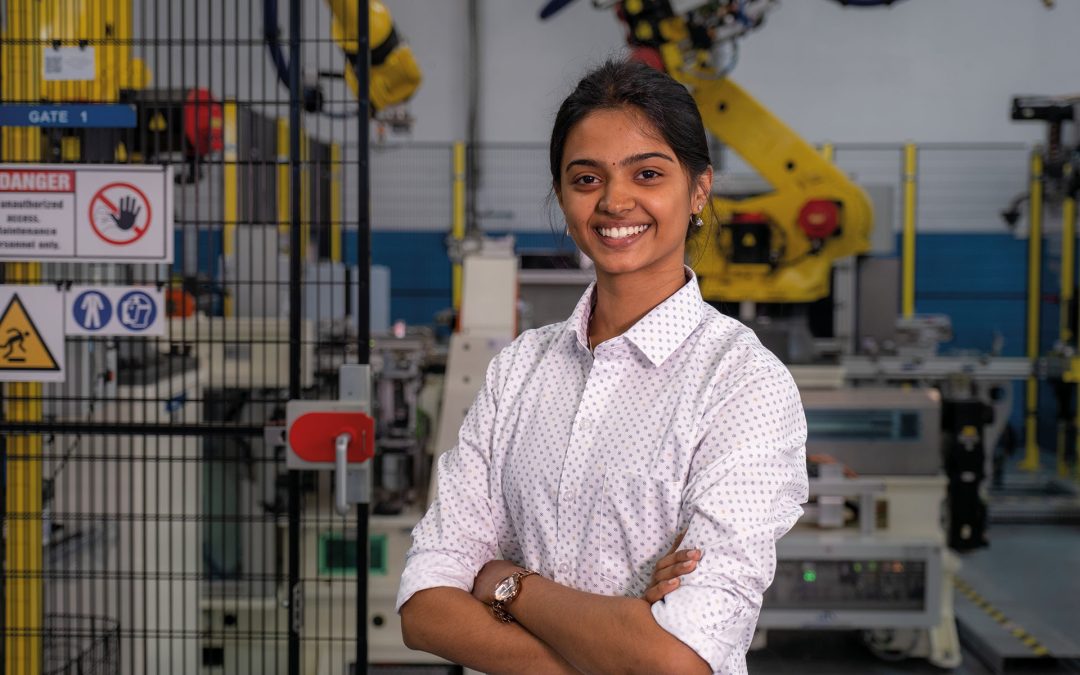An unplanned, last-minute application saw mechanical engineering student Mrudula Joshi beat out a host of other applicants to claim one of two spots in the exciting new international exchange programme initiated by Jendamark India in partnership with MIT-World Peace University.
The 20-year-old Joshi is in her final year of her four-year B.Tech degree but it was her trailblazing involvement in an extracurricular technical club that secured her the two-week trip to South Africa. She is the first female driver for Team Piranha Racing – the university’s official Baja team and Overall Champions at BAJA SAE India in 2021.
The 20-year-old Joshi is in her final year of her four-year B.Tech degree but it was her trailblazing involvement in an extracurricular technical club that secured her the two-week trip to South Africa. She is the first female driver for Team Piranha Racing – the university’s official Baja team and Overall Champions at BAJA SAE India in 2021.
Baja teams design and build their own racing buggies from scratch, with members learning about all aspects of vehicle production from inventory to design, assembly, sales and management.
“My mom always said this is all boys’ stuff. There are no girl drivers. So, from my first year, I wanted to be a driver – that’s the thing I wanted to change,” says Joshi.
“I had no technical experience. During lockdown I learned the software; I always want to learn something new. I worked very hard to move up through the team.”
She says her all-male team has been very supportive and respectful. “They were so happy there was finally a girl. Girls bring emotional intelligence; we keep things neat and orderly. They’re happy about the changes in themselves – it’s a progressive environment.”
Her experience has made her even more determined to pursue a career in vehicle dynamics and testing, and the automotive software behind it.
“It’s true that girls often want to do the software side of things and not get their hands dirty. But if you go into industry, even on the automation side, you need to have basic mechanical skills and an understanding of how things work. An engineer knows how to solve problems.
“I’m doing my internship at an OEM, but I would like to gain experience in a company that is a Tier 1 supplier. That is where all the work happens, whereas the OEM is all about management. You need to have strong technical knowledge before going into management,” explains Joshi.
Through a range of programmes, events and seminars, Jendamark has been instrumental in exposing Joshi and her fellow students to the latest Industry 4.0 technologies, while helping MIT-WPU to develop a curriculum that ensures its students are workplace ready. Joshi’s older brother is one of the students who completed their final-year engineering internship with Jendamark India.
“Other companies are older, but they don’t want to change. Our generation has come with fresh minds. We always want to introduce something new and implement the new things with the existing ones,” smiles Joshi.
“Jendamark in India and South Africa has an amazing culture. The people are friendly, and you can explore opportunities in various departments.
“All aspects of engineering are involved in this automation company. Other companies go for the big things. Jendamark works on a small thing very hard. Right now, they are developing Odin – you could do anything with that software.”
She describes the trip to South Africa, which included visits to Nelson Mandela University’s School of Engineering and School of IT, the world-famous Addo Elephant Park, and, of course, Jendamark Automation’s headquarters, as an amazing experience.
“This is the first time that I’ve travelled without my family. My brother is so proud of me, and they always want to protect me, but now I know what I’m capable of.”
